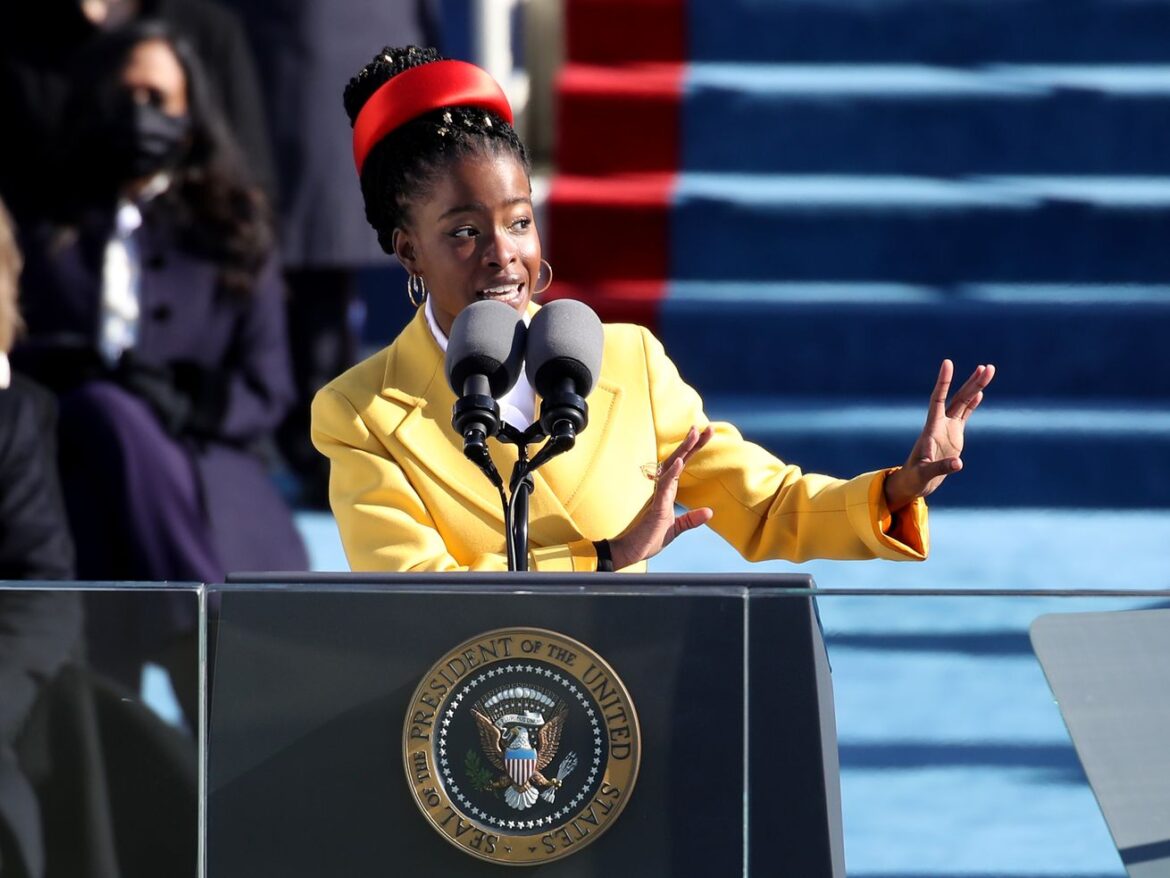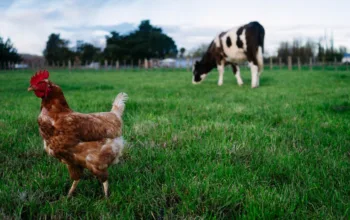A Florida school has restricted who can read “The Hill We Climb,” a poem read at Biden’s 2021 inauguration.
One Florida school’s decision to restrict access to a poem written for and performed at President Joe Biden’s 2021 inauguration has increased scrutiny of book bans in the state, and the growing commitment to such efforts across the country.
The bans, some of which can begin with a single parent flagging a book as objectionable, have included books like The Bluest Eye by Toni Morrison and The Perks of Being a Wallflower by Stephen Chbosky. And as education experts tell Vox, the bans can have the effect of cutting out entire groups and themes from students’ learning experiences, particularly stories centering people of color and LGBTQ people.
Last month, a Miami-Dade County school removed Amanda Gorman’s poem “The Hill We Climb” from its elementary school collection following a complaint filed by a parent, according to a report by the Miami Herald. Gorman, who was 22 during the inauguration, was the country’s national youth poet laureate at the time. Her poem, which she wrote shortly after the January 6, 2021, Capitol insurrection, laid out an optimistic vision of how the country could move forward and attempt to bridge its divides.
In the complaint, the parent reportedly flagged multiple books addressing Black history, and claimed that Gorman’s poem “indirectly” featured “hate messages.” The poem is still available to the school’s middle schoolers, but not younger readers. The decision to change access to the poem is alarming given both the message it contains, and the important historical context it provides.
The treatment of Gorman’s poem, however, is just one example of a broader resurgence of book bans driven by Republican lawmakers across multiple states. Last year, Florida’s legislature approved legislation that limited teachings about race and LGBTQ rights, both of which have led to certain books being removed from school shelves. Districts in states including Texas, Missouri, Utah, and South Carolina have also put forth similar restrictions. And according to an American Library Association Report, the number of book ban attempts at schools and public libraries reached a record high in 2022 and included nearly double the number of challenges that the group observed in 2021.
As Vox’s Zack Beauchamp explained, Republican lawmakers have increasingly turned to book bans as a way to push an “ideologically slanted vision of what children should learn about American culture, society, and history.” In many cases, like the Florida laws, these bans have specifically focused on curbing information about systemic racism, LGBTQ identity, and the contributions of marginalized groups to American society. Educational experts emphasize that these bans mean students are exposed to a narrower range of ideas and that many may not see themselves represented in the literature they read.
“Unnecessary book bans like these are on the rise, and we must fight back,” Gorman wrote in an Facebook post Tuesday responding to the Florida school’s decision. “Robbing children of the chance to find their voices in literature is a violation of their right to free thought and free speech.”
The concerning rise and impact of book bans
The limits placed on Gorman’s poem, like many other book bans in recent years, highlight how some schools and libraries are now restricting content that students are exposed to based simply on parental objections. In Florida, a new law passed by the legislature goes so far as to require that a book needs to be removed for review within five days of it being flagged by a parent or teacher.
The complaint about Gorman’s poem, which was shared by the Florida Freedom to Read Project, an activist group dedicated to combating the state’s restrictions, came from a parent who also raised concerns about other books focused on Black history and Cuba including titles The ABCs of Black History, Love to Langston, and Cuban Kids. The parent argued that Gorman’s poem would “cause confusion” and “indoctrinate students.”
“It was determined at the school that ‘The Hill We Climb’ is better suited for middle school students and it was shelved in the middle school section of the media center,” Miami-Dade County Public Schools spokesperson Elmo R. Lugo told Axios. “The book remains available in the media center.”
Moves that reduce book access for younger readers still curb students’ ability to learn certain materials, Stephana Ferrell, the director of research and insight at Florida Freedom to Read Project, told the Miami Herald. The pulling of books and complaints about them have centered heavily on offerings that feature people of color and LGBTQ people as main characters or authors, according to the American Library Association.
Conservatives who’ve advanced such bills have argued that they’re needed to protect children from being exposed to ideas about race that make them feel guilty, or ideas about sexuality that they are too young to understand. Educational experts note, however, that these policies are intended to change the narrative of what students learn and see, and whose contributions are treated as valuable in the US.
“They are using erasure of students and erasure of groups of people as educational violence. Kids need to see themselves in what they read and learn,” says Northeastern University education professor Jaci Urbani. “All kids need to see the contributions of people of color, of people who are queer, of people who are different from themselves.”
The push to ban books has come as Republicans have made schools and parental rights a major focus of their culture wars, an issue they’ve harped on in recent elections to some success in places like Virginia and Florida. Longer term, it’s a way for lawmakers to elevate voices that most align with the groups they’d like to keep in power.
“Particularly in [Florida], the increase seems to be a reactionary measure, decidedly to prevent systemically marginalized populations from having a ‘seat at the table,’” Duke University education professor Kisha Daniels told Vox in an email.



